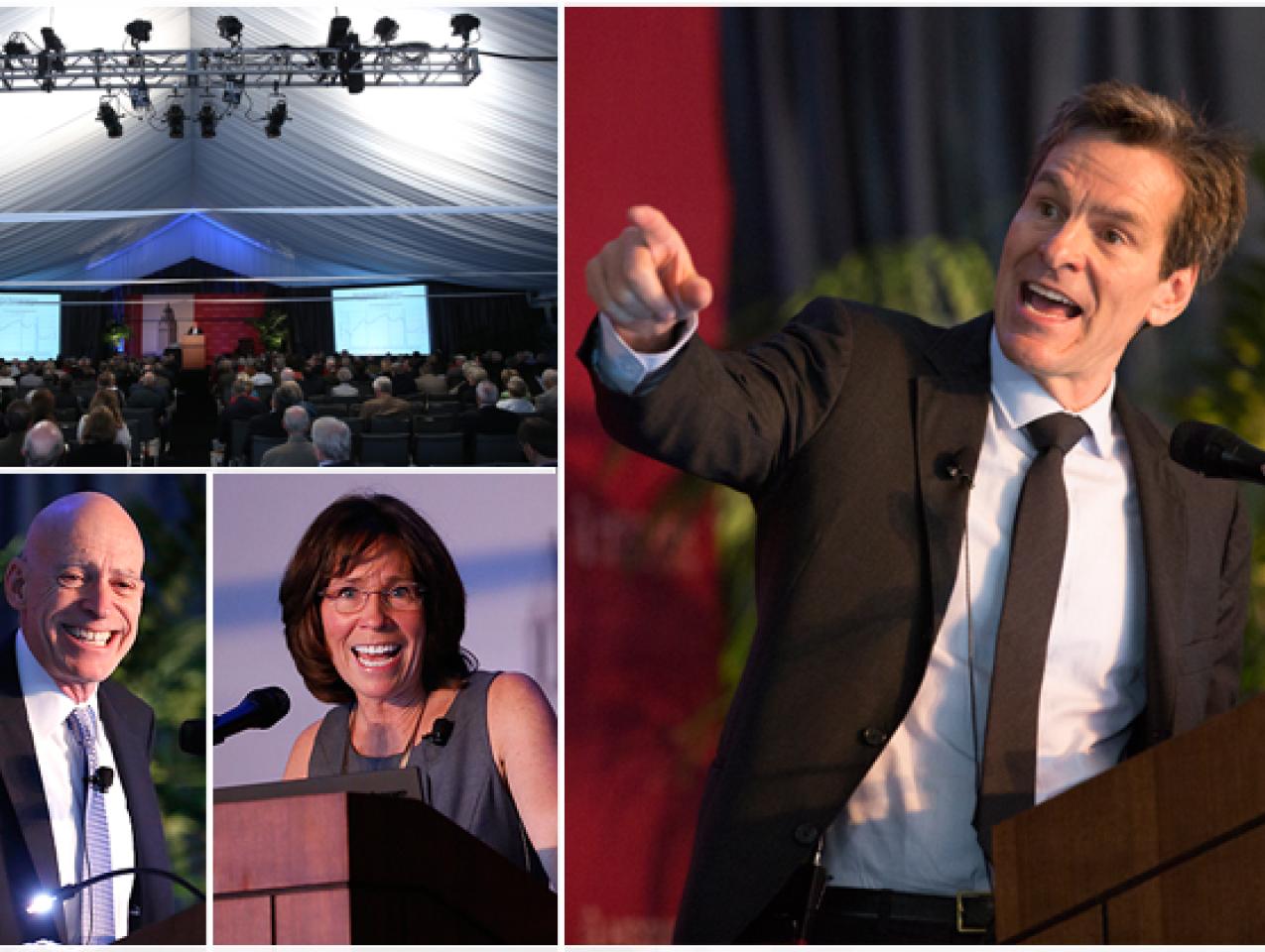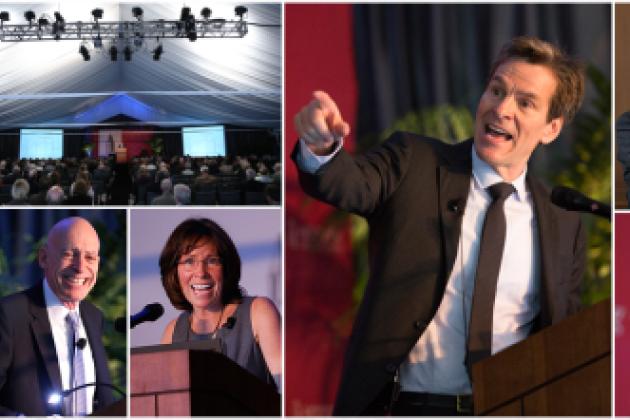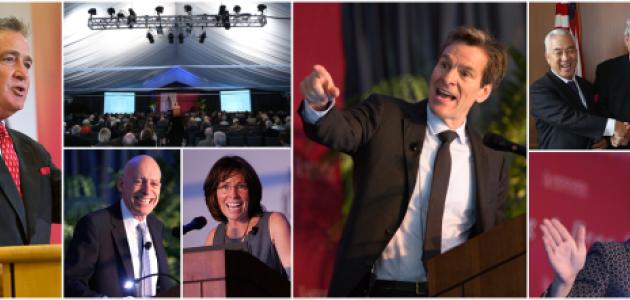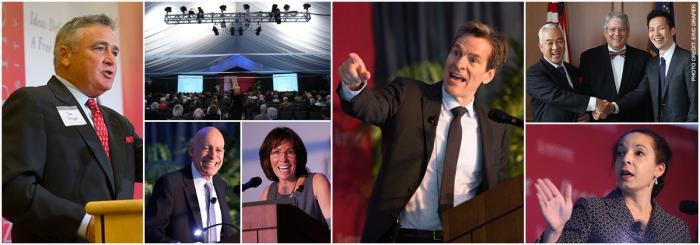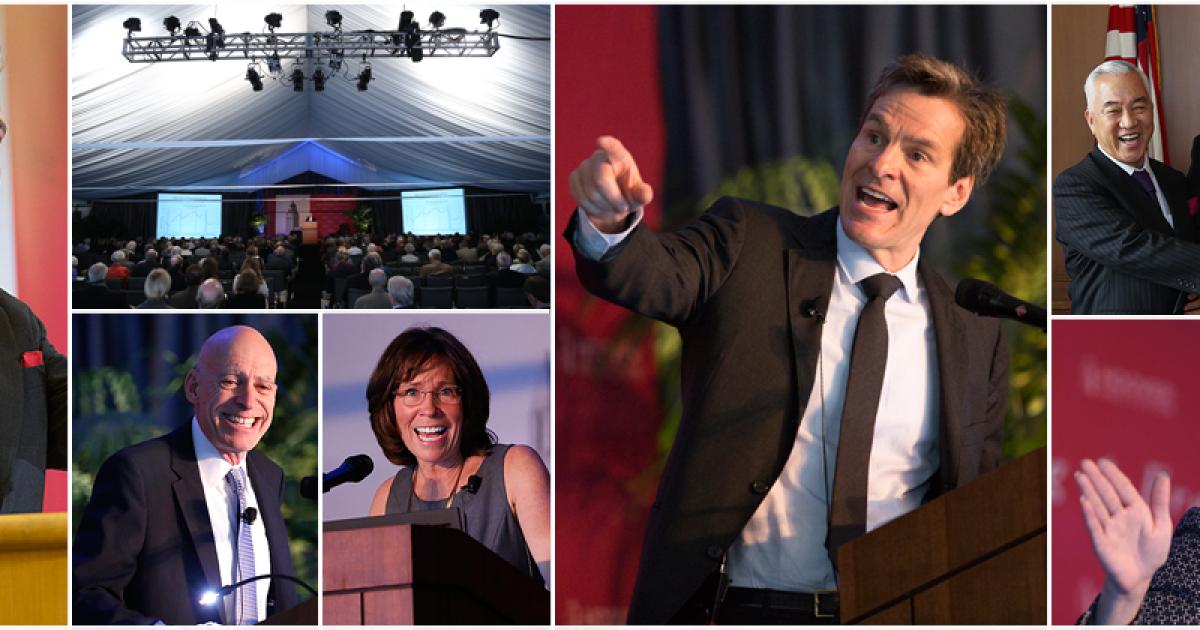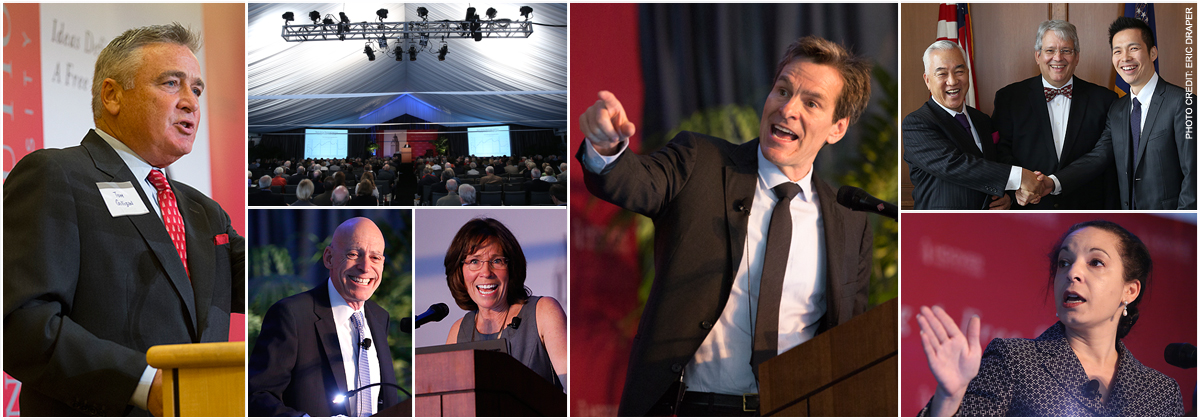
PODCASTS
What Will The Supreme Court Think Of Next?
Recorded on October 19, 2015 - Hoover Institution fellow Michael McConnell discusses the US Supreme Court, noting that the New York Times refers to the past term as the most liberal term since the Warren Court in the 1960s. During the past term, the justice most often voting with the majority decision was Stephen Breyer; number two was Sonia Sotomayor. It was also a divisive term. Will that be a blip or the new normal for the Court? It is hard to tell because the Supreme Court does not hear that many cases, but its ideological complexion is determined by the issues the justices are addressing. McConnell concludes with two cases he believes are the most important constitutional cases of our time. One concerns Obama giving legal status to more than four million undocumented workers, meaning they are eligible to work, get Social Security, and so on. Can Obama do this even though it goes against laws Congress has passed? The second case concerns whether Obama can use money from the Treasury, which Congress has failed to appropriate, for payments to insurance companies to reimburse them for losses under Obamacare.
Game On: The United States And China In The Indo-Pacific
Recorded on October 19, 2015 – Hoover Institution fellow Gary Roughead discusses China’s importance and the strategic competition in the next 100 years between the United States and China. The last transfer of strategic power, between Great Britain and the United States was relatively seamless. We came from similar foundations, similar legal structures, similar ideas on trade, and so on. That is not the case with China, where demography is a problem, meaning, we need to look at the playing field differently. Because China will have a significant role in Asia, we need an interdependent relationship with China and Asia. We need to understand the broader context in which the United States, China, and other countries will be playing and what rules, guidelines, and behaviors we can expect in the coming years. Roughead concludes that we need to have the long view, accept that China and the United States will be interdependent, and think in broader terms of the Indo-Pacific playing field and the countries involved. For the United States to succeed we need to view the whole field and realize it is the next strategic competition.
Getting Serious About Defense Policy
Recorded on October 19, 2015 – Hoover Institution fellow Kori Schake discusses the importance of defense spending, noting that we have bigger problems than defense spending and are not likely to solve those problems until we can agree on entitlement spending. Such an agreement will make it possible to get the resources for more defense spending. The United States enjoys a wide margin of error in defense policy, but we are playing a strong hand weakly. Geoffrey Blainey wrote that wars are begun by states who believe they can win. It’s not arms buildup, it’s not cultural factors, and it’s not one power being stronger than another; wars begin because a country thinks it can win. We are at risk for war because Obama has abandoned his global responsibility. Schake concludes with a warning that, until we get an agreement on entitlement reform showing we are governable as a society, we are going to be at risk. An entitlement agreement is the canary in the coal mine.
Recorded on October 20, 2015 – Hoover Institution fellow Amy Zegart notes that during the past two years Hoover has conducted a cyber boot camp for senior congressional staff that has already paid dividends in legislation on Capitol Hill. Zegart notes that cyber threats are everywhere and that we need to know about them. The threat environment the United States confronts today is unprecedented. During the Cold War we faced the grave prospect of nuclear Armageddon. But in terms of the threat landscape it was straightforward. We knew who our adversary was and we knew where it was located. Today the threat landscape is more crowded, more uncertain, and more dynamic. The complex threat environment is filled with rising states such as China, declining states such as Russia, weak states, failed states, rogue states like North Korea, non-state actors such as ISIS or Anonymous, transnational threats such as Ebola, global pandemics, global climate change, and so on. There are, however, two big differences in the threat environment today. One, for the first time one of the world’s major powers will be a developing country, China. Two, we live in a dramatic asymmetrical environment where great powers such as the United States are threatened by weak states or nongovernmental actors or by bands of individuals who can wage disproportionate war or damage our society. And, the threat environment is changing rapidly. Every year the director of national intelligence issues a list of threat assessments facing the United States. In 2007, cyber security did not make the list of threats. In 2009, cyber security was on page thirty-eight of a forty-five-page document. Cyber threats did not jump to the top of the list until 2012. Zegart concludes that in the jungle of the Internet it is easier for the bad guys to hide than it is for the good guys to find them; developing good policies is hard, but we must do it to confront and reduce the threats.









